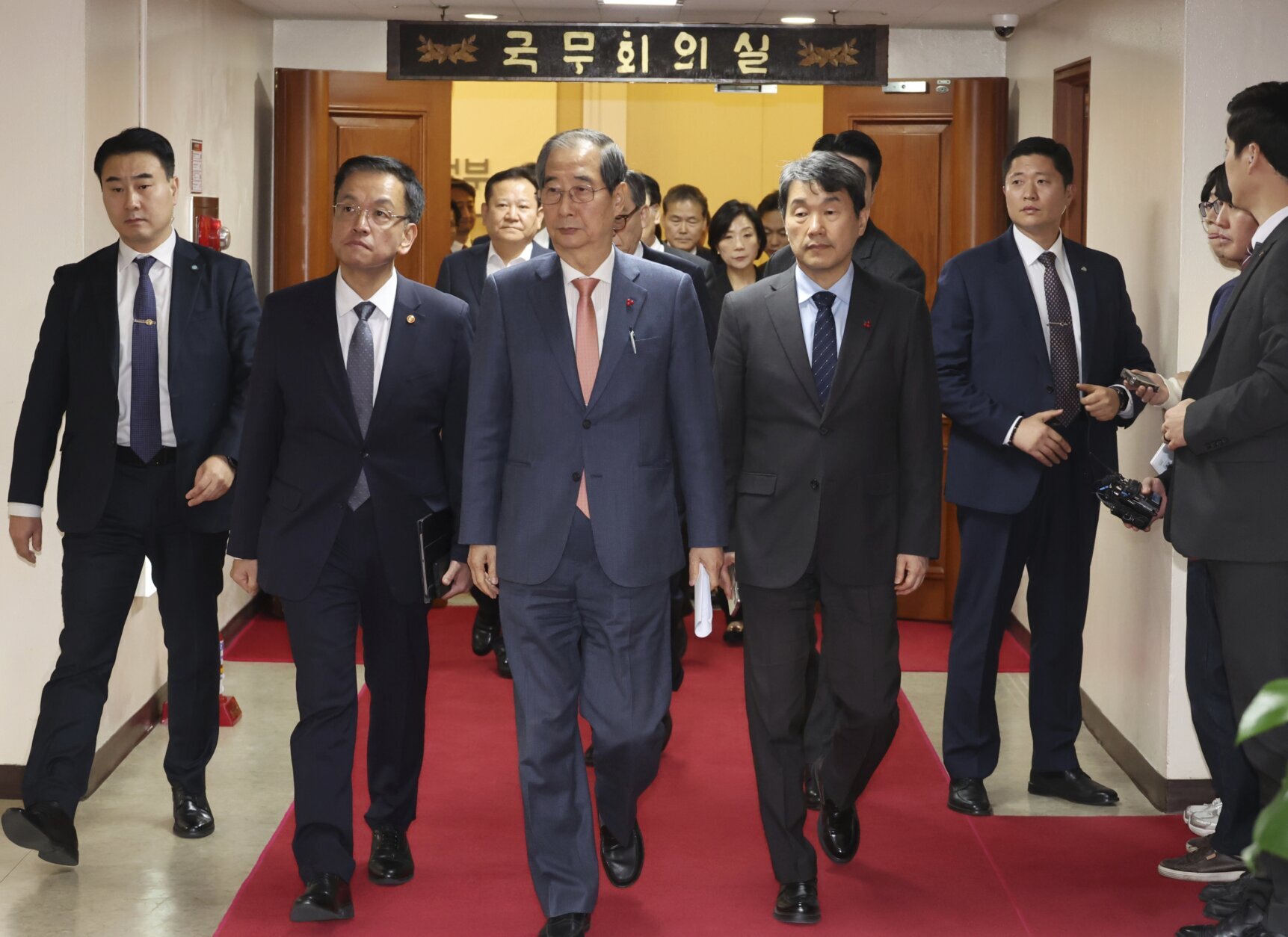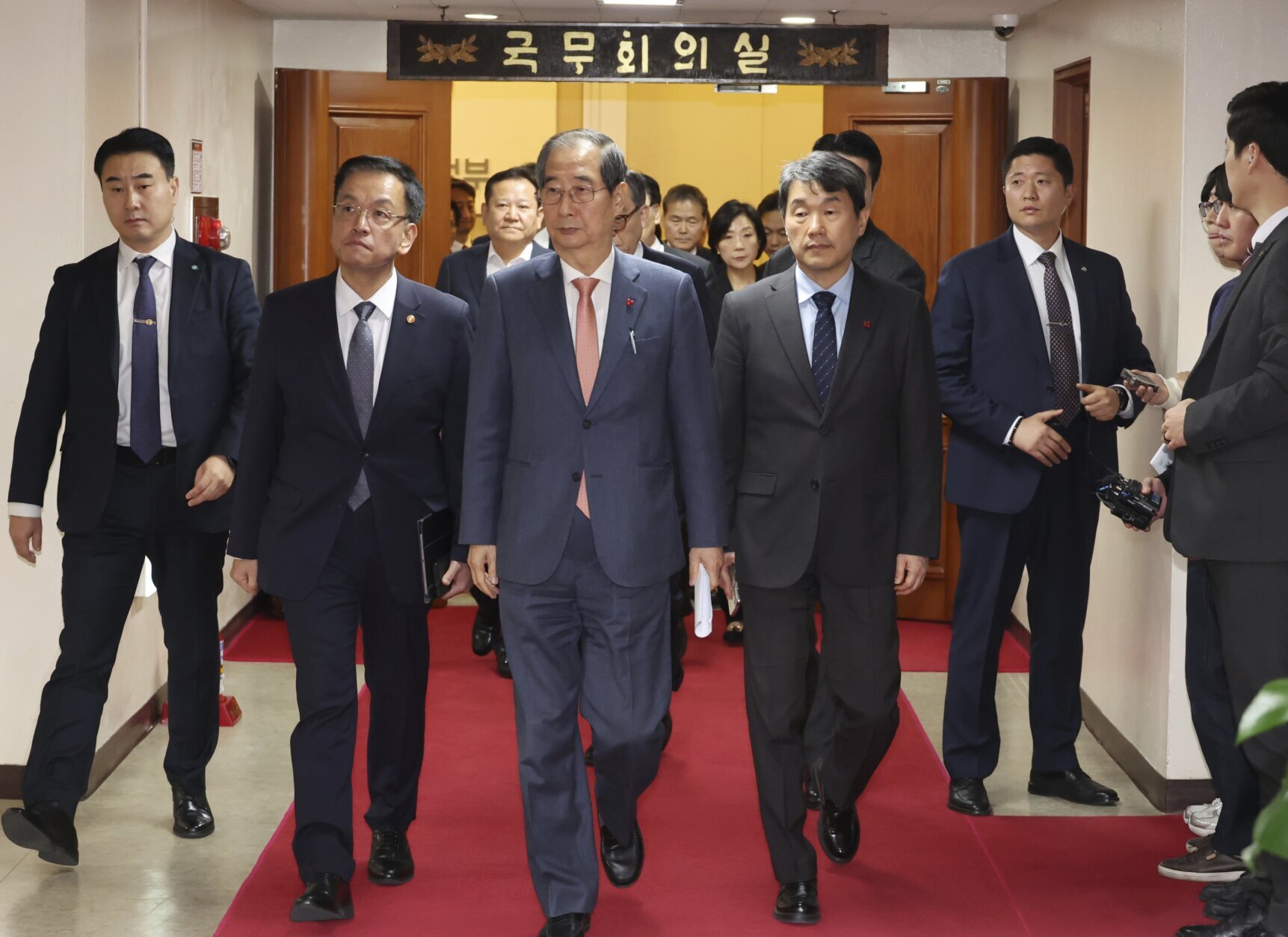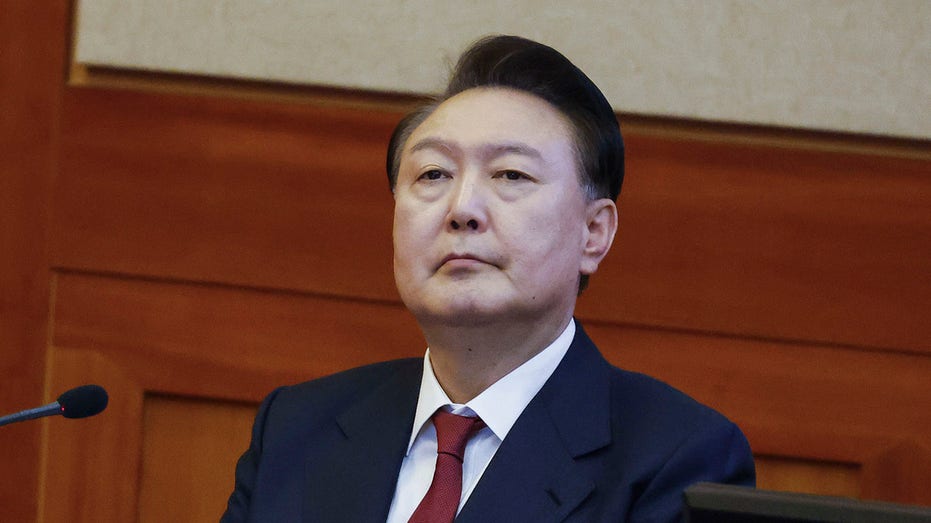
South Korean President Yoon Suk Yeol Indicted on Charges of Rebellion
Date: [Insert Date Here]
Historic Indictment Amid Political Chaos
South Korean prosecutors have officially indicted President Yoon Suk Yeol, currently suspended from his presidential duties, on serious charges of leading a rebellion. This unprecedented action follows his brief declaration of martial law last month, which has been met with widespread criticism and protests. The indictment has been announced by the opposition party and reported by numerous South Korean media outlets.
Understanding the Charges
Yoon, a conservative leader, enjoys presidential immunity from various criminal charges. However, South Korean law does not provide immunity against allegations of rebellion or treason. If Yoon is found guilty of these charges, he could face life imprisonment or even the death penalty.
“The prosecution has decided to indict Yoon Suk Yeol, who is accused of being the mastermind of the insurrection,” stated Han Min-soo, spokesperson for the Democratic Party, during a press conference. “The process to hold the ringleader of this insurrection accountable has finally begun.”
This marks a significant moment in South Korean history, as Yoon becomes the first sitting president to be criminally indicted and investigated.
Twilight of a Presidency
Yoon’s political troubles began with his impeachment, making him the second conservative president to face such a fate in South Korea’s history. On December 14, he was suspended by an opposition-controlled parliament, shortly after he declared martial law on December 3, 2024. This controversial decision unleashed a wave of political turmoil in South Korea, a key ally of the U.S. and a major global economy.
Yoon has maintained that his martial law declaration was necessary to combat the opposition-dominated National Assembly, which he accused of obstructing his governance. “The assembly is a den of criminals,” he declared, vowing to rid the government of “shameless North Korea followers and anti-state forces.” He went so far as to deploy troops and police to the National Assembly, only for lawmakers to convene and unanimously overturn the decree, which Yoon revoked after just six hours.
Public Backlash and Arrest
The unprecedented declaration of martial law reminded many citizens of Korea’s past under authoritarian rule during the 1960s-1980s. Despite its short duration, the act triggered intense public backlash, leading to widespread calls for Yoon’s impeachment.
In the weeks that followed, Yoon resisted attempts by law enforcement to detain him. A standoff between his security team and investigative authorities culminated on January 15, when a large-scale operation successfully arrested him at his residence. This historic event saw Yoon become the first sitting South Korean president to be taken into custody.
Widespread Protests Erupt
Yoon’s arrest was met with violent protests from his supporters. Following the approval of a formal arrest warrant by a local court on January 19, demonstrations erupted, with supporters storming the courthouse. These clashes resulted in property destruction and injuries to law enforcement officers, culminating in the arrest of 46 protesters.
Seventeen police officers sustained injuries during confrontations with demonstrators using bricks, steel pipes, and other makeshift weapons.
A Legal Crossroads
The Constitutional Court is now tasked with determining Yoon’s future in office, deliberating whether to permanently remove him from power or reinstate him as president. Concurrently, the indictment marks a crucial escalation in the legal battle facing Yoon. The Corruption Investigation Office for High-Ranking Officials (CIO), which initially handled the investigation, transferred the case to the Seoul Central District Prosecutors’ Office, recommending charges of rebellion, abuse of power, and obstructing the National Assembly.
Despite these developments, Yoon’s defense team has been adamant that he will not cooperate with the CIO, arguing the agency lacks jurisdiction to investigate claims of rebellion. The CIO, however, asserts that accusations of rebellion are intrinsically linked to broader claims of abuse of power and malfeasance.
The Broader Implications
In addition to Yoon, several officials involved in the martial law declaration—including the defense minister, police chief, and key military commanders—have faced arrests for their roles in the controversial decree. The ramifications of these events go beyond Yoon’s presidency; they signal a potential shift in South Korea’s political landscape, raising questions about the accountability of leaders in a democratic society.


















